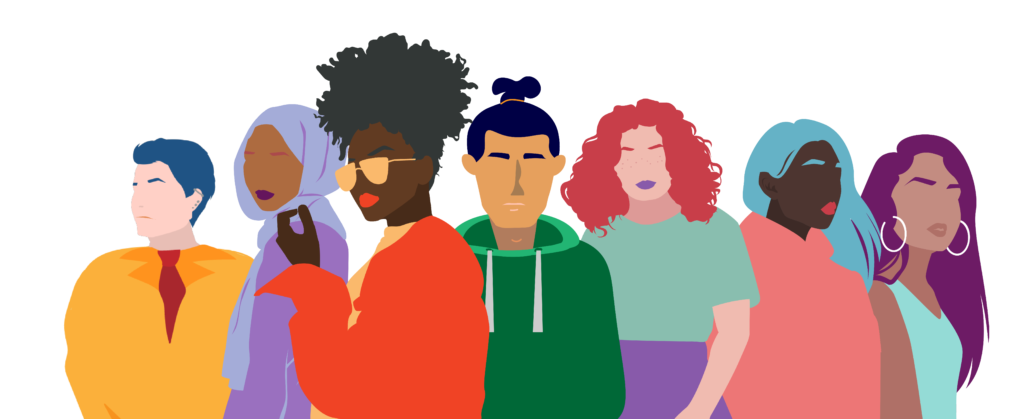
Research shows that culturally diverse teams outperform and out-innovate culturally homogenous teams, and lead to better science. But addressing cultural diversity can be daunting. In recent times, we have been confronted with the difficulties of racial discussions and the legacy of racism in our institutions. Research is not insulated from these dynamics.
Culturally aware mentoring (CAM) guides faculty mentors to understand the sources and impact of bias graduate trainees from diverse backgrounds to improve the training environment for students from underrepresented (UR) groups. The program was developed by Dr. Angela Byars-Winston at the Center for the Improvement of Mentoring Research Experiences (CIMER), which is part of the National Research Mentoring Network (NRMN, NRMNet.net) funded by the National Institutes of Health (NIH). The novel intervention aims to increase mentors’ skills for interacting with mentees from different racial, ethnic and social backgrounds than the mentor. Find out more here.
This CIMER CAM workshop is one effort toward achieving inclusive excellence. While there are many aspects to cultural diversity, the CIMER CAM workshop focuses on race. Extrapolations can easily be made to other aspects of our identities.
The program’s learning objectives are:
- Identify how cultural beliefs, worldviews, and identities influence mentoring practices;
- Recognize how cultural diversity can impact, complicate, and benefit research mentoring relationships;
- Acknowledge the impact of conscious and unconscious assumptions, privilege, stereotype threat, and biases on the mentor-mentee relationship; and
- Apply evidence-based strategies using case studies to reduce and counteract the impact of biases, stereotype threat, and privilege to foster trusting, culturally responsive mentoring relationships.
Next CAM Training is coming Winter/Spring 2025.
If you’re interested in attending an upcoming CAM training, please email inclusionbiosci@uci.edu. Training will be for faculty and academic staff. Future training will be available for graduate students and postdocs.
Information for CAM Participants:
The CIMER Culturally Aware Mentoring workshops are conducted at an advanced level and assume familiarity with equity and inclusion in mentorship practices. This workshop was designed for those who have been introduced to core mentorship education concepts and have reflected on their practice. All participants at the event will be expected to have had some prior mentor training. This prerequisite can be fulfilled in a number of ways such as:
- Attend a CIMER Mentoring Training (previously offered at UCI)
- Completion of four hours of other mentor training
- Completion of the Optimizing the Practice of Mentoring (OPM) from the University of Minnesota – online training.
Participant Pre-Work:
In addition to having completed prior mentor training, CAM participants are asked to complete an online module, iCAM, and to complete a personal reflection exercise, Culture Box. These two pre-work assignments will require 1-2 hours of time in total. These pre-work assignments will be forwarded to confirmed participants two weeks prior to the training.
UC Irvine CAM-Trained Facilitators
Four members of the UC Irvine community completed CAM Facilitator Training with CIMER (members of the inaugural cohort of trained facilitators) and will be providing CAM training to the UC Irvine community at least once a year.
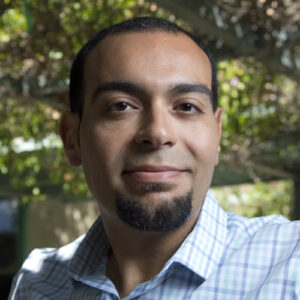
Michael A. Yassa, Ph.D.
Bio Sci Associate Dean of DEI
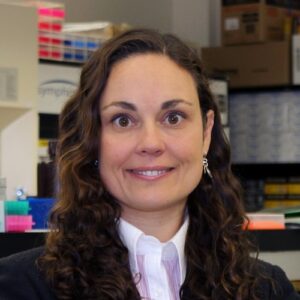
Christie Fowler, Ph.D.
Professor, Neurobiology and Behavior
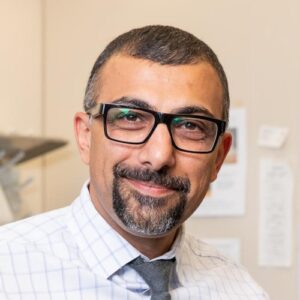
Manny Azizi, Ph.D.
Professor, Ecology and Evolutionary Biology
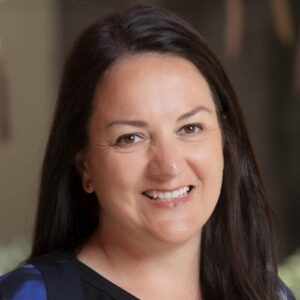
Manuella Oliveira-Yassa, Ph.D.
CNLM Director of Outreach and Education
Listing of those who completed CAM Training at UCI
| First Name | Last Name | Department |
| Nancy | Aguilar-Roca | Ecology and Evolutionary Biology |
| Steven | Allison | Ecology and Evolutionary Biology |
| Bogi | Andersen | Biological Chemistry |
| Aileen | Anderson | Physical Medicine and Rehabilitation |
| Rosa | Andrade | Medicine |
| Herdeline | Ardona | Chemical and Biomolecular Engineering |
| Manny | Azizi | Ecology and Evolutionary Biology |
| Kevin | Beier | Physiology and Biophysics |
| Suzie | Bohlson | Molecular Biology and Biochemistry |
| Adriana | Briscoe | Ecology and Evolutionary Biology |
| Remi | Buisson | Biological Chemistry |
| Anne | Calof | Developmental and Cell Biology |
| Lulu | Chen | Anatomy and Neurobiology |
| Liz | Chrastil | Neurobiology and Behavior |
| Susana | Cohen-Cory | Neurobiology and Behavior |
| Karina | Cramer | Neurobiology and Behavior |
| Brian | Cummings | Physical Medicine and Rehabilitation |
| Monica | Daley | Ecology and Evolutionary Biology |
| Javier | DIaz Alonso | Anatomy and Neurobiology |
| Peter | Donovan | Developmental and Cell Biology |
| Nir | Drayman | Molecular Biology and Biochemistry |
| Laura | Ewell | Anatomy and Neurobiology |
| Leora | Fellus | School of Medicine Office of Graduate Studies |
| Christie | Fowler | Neurobiology and Behavior |
| Alan | Goldin | Microbiology and Molecular Genetics |
| Shane | Gonen | Molecular Biology and Biochemistry |
| Joshua | Grill | Neurobiology and Behavior |
| Patrick | Guidotti | Mathematics |
| Tobin | Hammer | Ecology and Evolutionary Biology |
| Elizabeth | Head | Pathology and Laboratory Medicine |
| Brad | Hughes | Ecology and Evolutionary Biology |
| Autumn | Ivy | Anatomy and Neurobiology |
| Young | Kwon | Pharmaceutical Sciences |
| Pablo | Lara-Gonzalez | Developmental and Cell Biology |
| Melissa | Lodoen | Molecular Biology and Biochemistry |
| Gyorgy | Lur | Neurobiology and Behavior |
| Stephen | Mahler | Neurobiology and Behavior |
| Matthew | Marsden | Microbiology and Molecular Genetics |
| Jennifer | Martiny | Ecology and Evolutionary Biology |
| Selma | Masri | Biological Chemistry |
| Edwin | Monuki | Pathology and Laboratory Medicine |
| Dequina | Nicholas | Molecular Biology and Biochemistry |
| Manuella | Oliveira Yassa | Neurobiology and Behavior |
| Nick | Pannunzio | Biological Chemistry |
| Hannah | Park | Pathology and Laboratory Medicine |
| Michael | Parsons | Developmental and Cell Biology |
| Eitan | Schechtman | Neurobiology and Behavior |
| Bert | Semler | Microbiology and Molecular Genetics |
| Christine | Suetterlin | Developmental and Cell Biology |
| Vivek | Swarup | Neurobiology and Behavior |
| Leslie | Thompson | Neurobiology and Behavior |
| Katie | Thompson-Peer | Developmental and Cell Biology |
| Roberto | Tinoco | Molecular Biology and Biochemistry |
| Douglas | Tobias | Chemistry |
| Ana Garcia | Vedrenne | Ecology and Evolutionary Biology |
| Armando | Villalta | Physiology and Biophysics |
| Craig | Walsh | Molecular Biology and Biochemistry |
| Katrine | Whiteson | Molecular Biology and Biochemistry |
| Marcelo | Wood | Neurobiology and Behavior |
| Xiangmin | Xu | Anatomy and Neurobiology |
| Michael | Yassa | Neurobiology and Behavior |
| Kyoko | Yokomori | Biological Chemistry |

